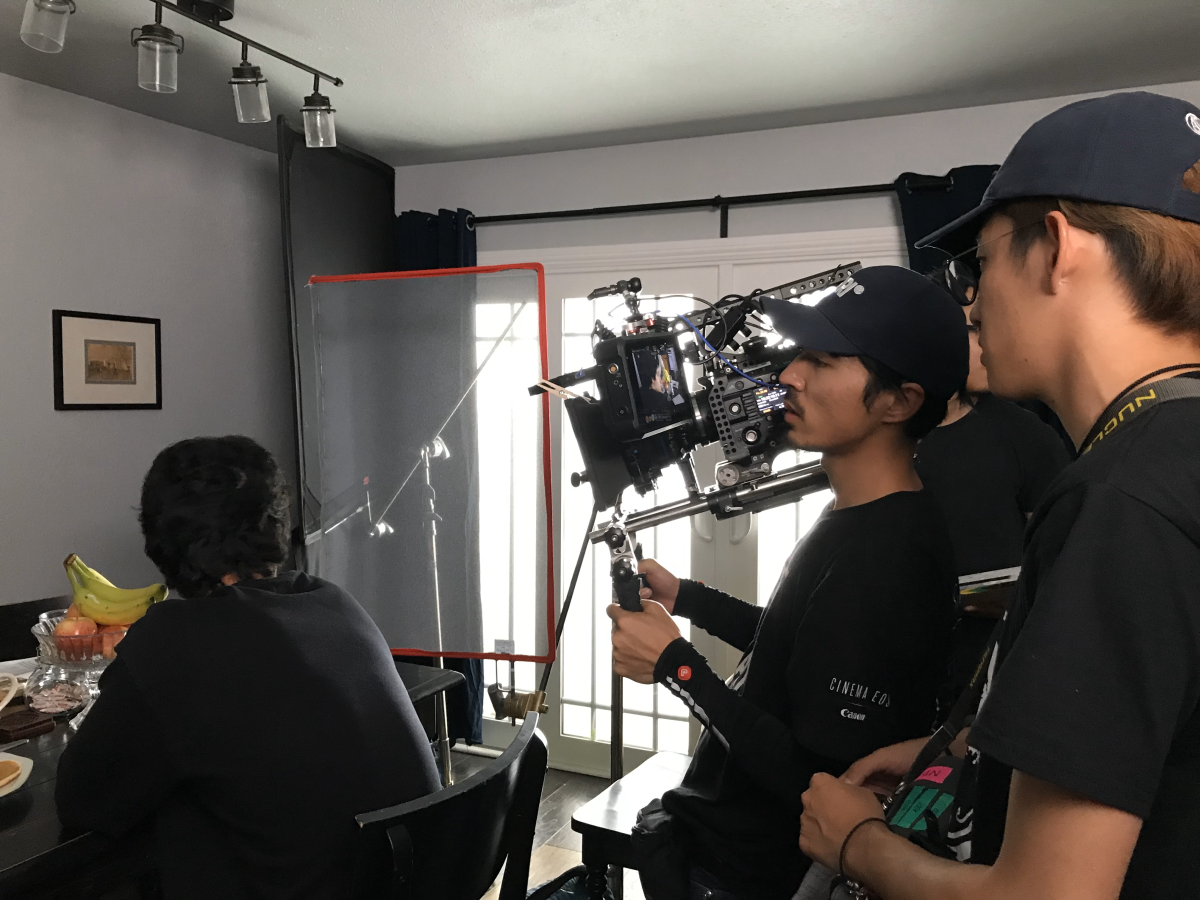Police recommend manslaughter charge against driver in crash that killed Chapman film student

- Share via
California Highway Patrol officers have recommended that the Imperial County district attorney charge the driver of an off-road vehicle that crashed earlier this year, killing a student cinematographer, with involuntary vehicular manslaughter.
The police report, obtained by The Times, reveals details of the April 15 accident that killed Peng Wang, a 29-year-old Chapman University film student.
It lays blame for the crash with USC student Bingliang Li, who was driving the off-road vehicle.
Li, 25, violated a section of California’s vehicle code which prohibits driving off-road vehicles at a speed greater than is “reasonable or prudent and in no event at a speed which endangers the safety of other persons,” the report alleges.
Li “slowed [the vehicle] down to a speed which caused it to lose forward momentum,” Officer Javier L. Amezcua wrote in the police report. “The unsafe speed and the vehicle’s perpendicular path of travel to the slope of the sand dune caused [the vehicle] to overturn, which caused [Wang,] who was unrestrained, to suffer fatal injuries.”
Felix Woo, an attorney who represents Li, declined to comment.
“Peng Wang’s death was a horrible tragedy, and our deepest sympathy continues to be with his family members,” USC said in a statement. The university declined to comment on any disciplinary action, citing student privacy laws.
Although it was a USC film production, university officials have said they did not authorize the shoot and have accused the students of breaking safety rules.
“Peng was a beloved member of the Dodge College of Film and Media Arts community,” Chapman University said in a statement. “Our entire Chapman Family continues to feel his loss. He will be greatly missed.”
A spokesperson for the Imperial County district attorney did not respond to a request for comment.
The report sheds further light on the events that led to the death of the young cinematographer, who had been helping USC students on their film project when he died. The group were filming a short feature when the accident happened on the Imperial Sand Dunes, a remote desert area more than 230 miles from the USC campus.
The father of a Chapman University student from China said he was frustrated at the response to his son’s death, believing that more should have been done to prevent such an accident.
The California Highway Patrol officer was first alerted at 2:15 p.m. on April 15 that a fatal crash had occurred on the Imperial Sand Dunes. It was a warm, dry and calm day among the large rolling sand dunes when the officers arrived on the scene at 2:40 p.m., according to the police report. No speed limit was posted at the location, it noted.
A Can-Am off-road vehicle was lying on its right side facing south in the open desert. The four-seater had a seatbelt system, which a visual inspection found to be working. The right rear seat belt was fixed and locked behind the seat, indicating it was not in use during the crash, the officer wrote.
Wang, one of three passengers, wore a helmet which was scuffed on its right side. He had fatal injuries to his neck and was dead by the time CHP arrived.
Li told officers he had left L.A. the day before the crash at about 1 p.m. and arrived in the Glamis area to rent the all-terrain vehicle. He then drove to Yuma, Ariz., to rent an RV to stay in overnight in Glamis.
Wang had been in the area a week before to scout locations. He had driven an ATV before and was familiar with the vehicle, but not the terrain, according to the report.
At the scene, Li stated he had been driving at about 10 miles per hour over a berm and onto the side of a hill. He said the Cam-Am rental company had told him to follow tracks in the sand. He said he slowed down to get a view of the terrain when the vehicle rolled over and down the hill, the report stated. He told officers he tried to put Wang in a position to let him breath and removed his helmet.
The officers concluded that the Can-Am had been traveling southeast in the open desert at 10 miles per hour and that slowing down caused the car to roll.
The report concluded Wang, who was not wearing a seat belt, struck the roll cage inside the car, causing his fatal neck injury.
Wang, who went by the name Aaron, had nearly finished his film studies at Chapman when he died, so the university granted him his master of fine arts posthumously.
He had been helping a group of USC students on a student project for an intermediate directing course at USC, according to interviews and a film school certificate seen by The Times. The documents list Li as the producer and another USC graduate student, Ting Su, a passenger in the car, as director.
USC said previously that all student productions at its School of Cinematic Arts require specific approvals for any shoot taking place more than 50 miles away from campus, or involving the use of all-terrain vehicles. The university said it was not aware of any such approvals having been requested or provided for the film project.
Inside the business of entertainment
The Wide Shot brings you news, analysis and insights on everything from streaming wars to production — and what it all means for the future.
You may occasionally receive promotional content from the Los Angeles Times.
More to Read
Inside the business of entertainment
The Wide Shot brings you news, analysis and insights on everything from streaming wars to production — and what it all means for the future.
You may occasionally receive promotional content from the Los Angeles Times.












